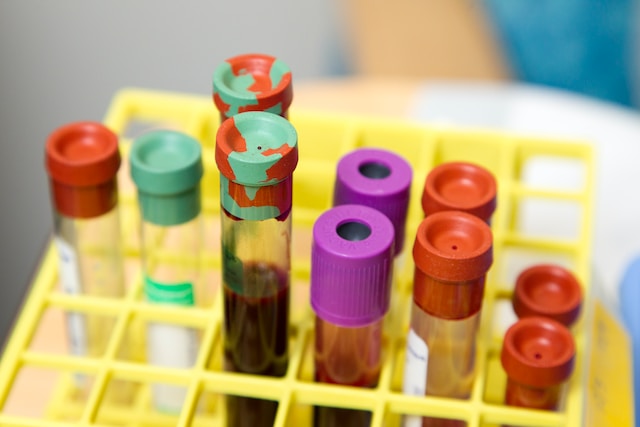Comments
- No comments found

Taking a step into the medical field can be intimidating for many people, but it could also be the gateway to an exciting and rewarding career.
Becoming a phlebotomist is one of those potential career paths that offer both physical and mental rewards, along with stability and security as healthcare continues to rise as one of the strongest industries in the economy. To truly understand if this career path might be right for you, it’s important that you first know what’s involved in being a phlebotomist—from educational requirements to salary expectations.
This article will provide insight into this driver role in terms of job duties, qualifications needed, earning potential, and more, so you can decide if going down this road is something that works for your future goals.

Phlebotomy is a vital medical procedure that involves drawing blood from patients for testing, transfusions, or medical research purposes. A phlebotomist - a trained medical professional - is responsible for accurately collecting the blood sample and properly labeling and storing it. The job involves interacting with patients, following strict safety protocols, and working with other healthcare professionals to ensure the accuracy and quality of the collected samples. Attention to detail, excellent communication skills, and a deep understanding of human anatomy and physiology are crucial for success in this field. Despite the challenging nature of the job, many phlebotomists find it rewarding to have a direct impact on patient care and contribute to important medical advancements.
A career in phlebotomy is a rewarding field that requires specific qualifications to practice professionally. If interested in becoming a Phlebotomist, you will need to attend a training program that covers anatomy, physiology, and the proper techniques for drawing and handling blood specimens. Obtaining certification and continuing education in this field is also important to ensure that one's skills stay up-to-date and relevant in the constantly evolving healthcare industry.
In addition to classroom instruction, these programs offer hands-on training, allowing students to practice their skills in supervised settings. Expert instructors teach the latest methods and best practices, ensuring that candidates have the necessary knowledge and skills required for successful phlebotomy careers. Pursuing a career as a phlebotomist serves an essential role in healthcare, and training programs play a vital role in preparing individuals for this critical profession.
As a phlebotomist, you’ll be responsible for collecting blood and other specimens from patients, which is a crucial step in the diagnosis and treatment of various medical conditions. One of the biggest benefits of this career path is job security. The demand for these specialists continues to grow, and there are many opportunities for advancement within the field. Additionally, many phlebotomists find fulfillment in their work, knowing that they are making a difference in the lives of their patients. If you are looking for a fulfilling and stable career in healthcare, becoming a phlebotomist could be the perfect fit for you.
As a phlebotomist, you play a crucial role in the healthcare industry. However, it is no secret that the job can come with its fair share of challenges. For starters, you may be required to work long hours, often under intense pressure. Then, there's the fact that some patients may not be as receptive to blood draws, making your job even more challenging. Additionally, as a phlebotomist, you must also follow strict safety protocols to minimize the risk of infections. Despite these potential challenges, and with the right training and the right mindset, you can overcome any obstacle and thrive in this fast-paced career.

With advances in medical technology, more and more specialists require accurate and timely blood tests to diagnose and treat their patients. This has created a tremendous demand for phlebotomists who can successfully draw blood and collect samples for analysis. Skilled phlebotomists have an excellent earning potential, with many opportunities for growth and advancement within the field. With a commitment to ongoing training and professional development, phlebotomists can build rewarding and fulfilling careers in the healthcare industry.
Anyone interested in becoming a phlebotomist must decide if they have the qualifications necessary to pursue this profession and evaluate the pros and cons. This comprehensive overview of phlebotomy should help prospective applicants understand what it takes to become certified, as well as the advantages and challenges of this chosen career path. While there are potential difficulties associated with it, there is also scope for tremendous growth, development, and financial reward, making it an attractive option for those looking to shape their future.
For those wanting to pursue a career in phlebotomy, evaluating the options available through various training programs can provide valuable insight into potential job prospects and certifications needed for success.
Leave your comments
Post comment as a guest